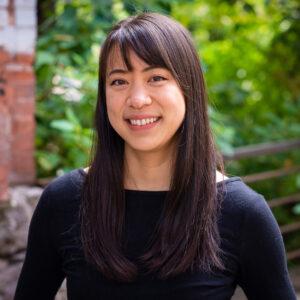
Communications Manager
Catherine Nguyen, owner and operator of Mora Mora Farm.
Inspired by the historical contributions of Asian farmers along the West Coast, Communications Manager Emilie Chen explores Asian American farming identity through five interviews.
All photos were taken by Emilie Chen.
I’m the child of Taiwanese immigrants. My parents came to the US in 1979 and 1981, after the passage of the 1965 Immigration and Nationality Act lifted restrictions against non-European immigration. Like many Taiwanese immigrants of that time, my parents sought graduate degrees and economic opportunity in the US. And they wanted to pass down a similar life script onto their Americanized children: to professionalize and pursue a higher socioeconomic status than the one they left behind.
I wasn’t asked to think much about the Asians who came before us or even of our other Asians contemporaries, whose languages and cultures are different from ours. But after moving to Portland, Ore. in 2018 and experiencing frequent microaggressions in the “whitest big city in America,” I became more reflective of my family’s immigration story. I began to look more carefully at the commonality among many Asian immigration stories, the economic upheavals left in the wake of U.S. imperialism.
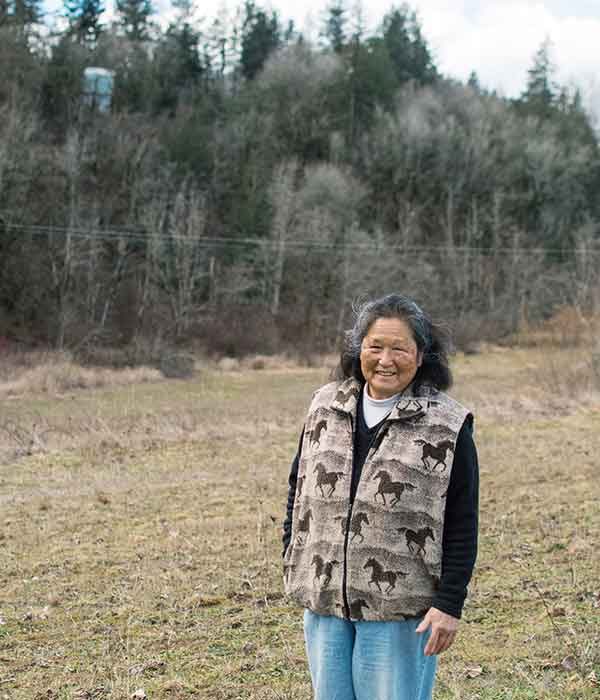
Pam Oja, fourth-generation owner of Tamura Farms.
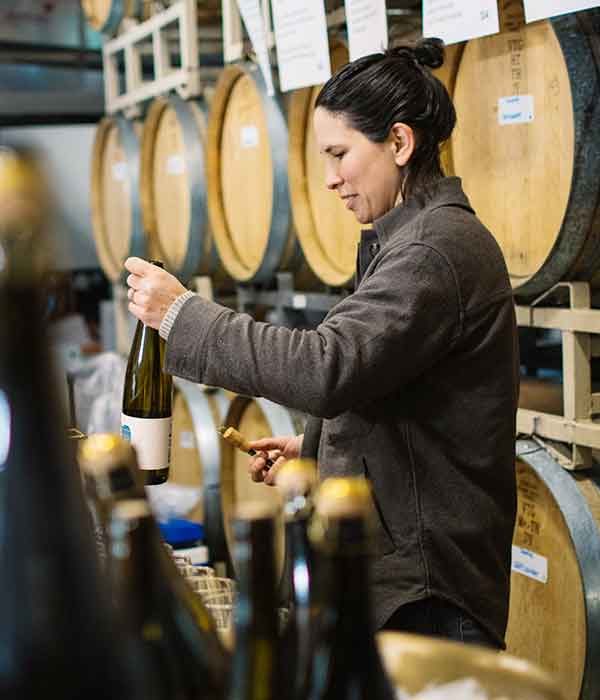
Malia Myers, co-owner of Landmass Wines.
And at Ecotrust, for one of the first times I thought more deeply about food systems. I began to better understand how the American agricultural system exploits non-European Americans, beginning with the genocide and displacement of Indigenous people and sustained by centuries of labor stolen from enslaved Black people and exploited from immigrants.
Many of Oregon’s labor needs during the 19th century were fulfilled by migrant Chinese workers, who were more tolerant of lower wages and more meager working conditions than white workers. Eventually, “[the] Oregon and California Railroad Company turned to Japanese laborers when immigration by Chinese workers was outlawed by the Chinese Exclusion Act of 1882—the first law that banned immigration based solely on race and nationality…” (Source: Japanese American Museum of Oregon)
Relearning this period of history highlighted the exhausting, cyclical pattern of xenophobia: Many white Americans grow resentful toward the immigrants they perceive as stealing their jobs, often scapegoating one minority group to later exploit another.
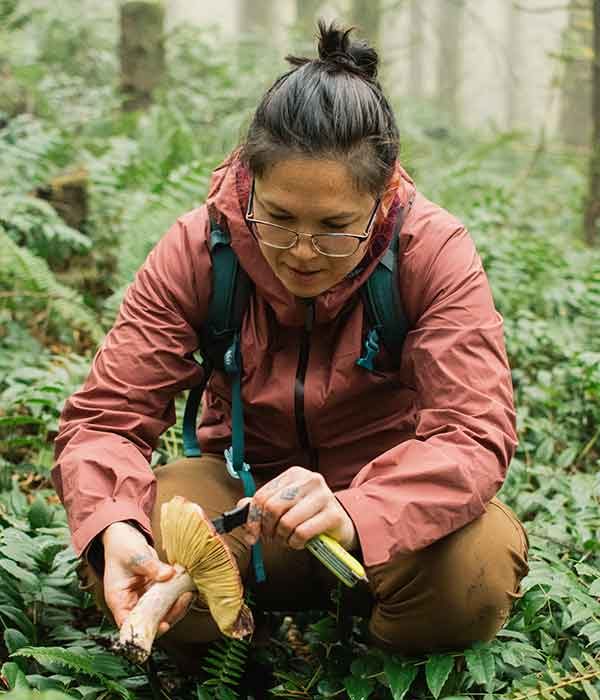
Chantal Wikstrom, descendant of Cambodian immigrant farmers.
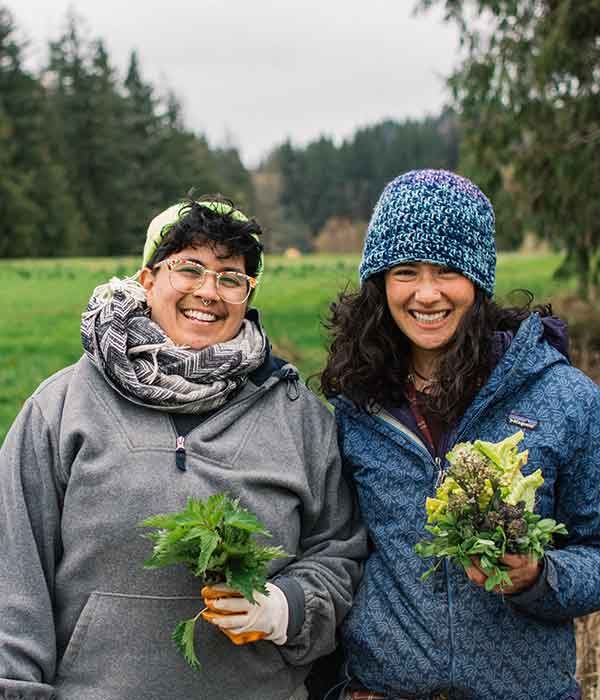
Leilani Mroczkowski and Jihelah Greenwald, co-founders of Kasama Farm.
By the early 1900s, a majority of crops along the West Coast were produced by Japanese farmers and farmworkers, of which my boyfriend is a descendent. His grandfather, Shigeo Tashima, moved to the US in the 1930s, and he began a produce wholesale business with his brother. During World War II, Shigeo, along with 120,000 people of Japanese descent, were incarcerated by Executive Order 9066, which was passed partly due to pressures from white farmers upset at the success of Japanese farming.
Living in the under-acknowledged legacy of Asian farming in the West Coast, over the past year, I began to explore the questions: what does Asian agriculture look like today in Oregon? What does it mean to farm in a state where the majority of land ownership is white? What have been the challenges of farming in a climate that can be drastically different from our ancestral lands? Who are the Asian farmers of today?
I spoke with six Asian Americans who shared much about their family immigration stories and connections to growing food here in the Pacific Northwest. Read their stories below.
On a brisk February afternoon, the fourth-generation owner of Tamura Farms, Pam Oja (née Tamura) met me on the driveway of the property that her great-grandparents purchased in 1919.
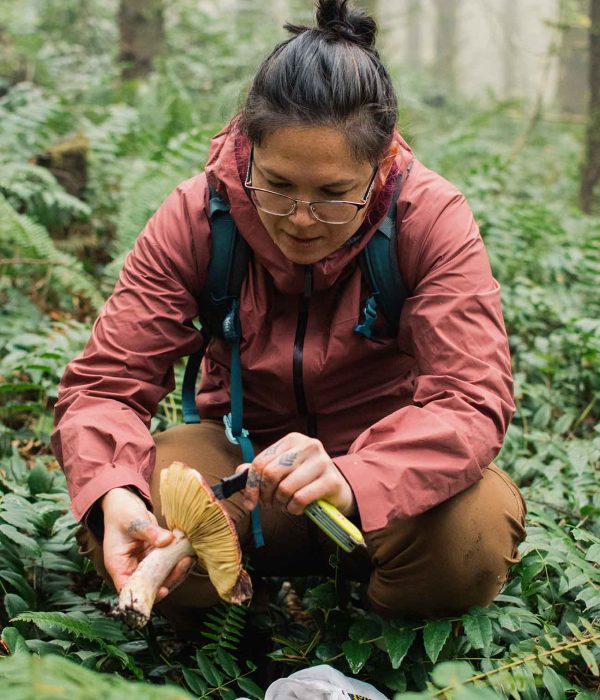
Emilie Chen speaks with Chantal Wikstrom, who is a granddaughter of Cambodian farmers who came to the US as refugees. Chantal reflects on her childhood growing up on a farm and how that has influenced her interest in one day owning a farm.
In the third interview of a series about Asian American farming, Emilie Chen speaks with Malia Myers, co-founder of Landmass Wines based in Cascade Locks, Ore. Malia shares her journey into winemaking and the inspirations she has drawn from her great-grandparents, who were Filipinx immigrant plantation workers in Hawai’i.
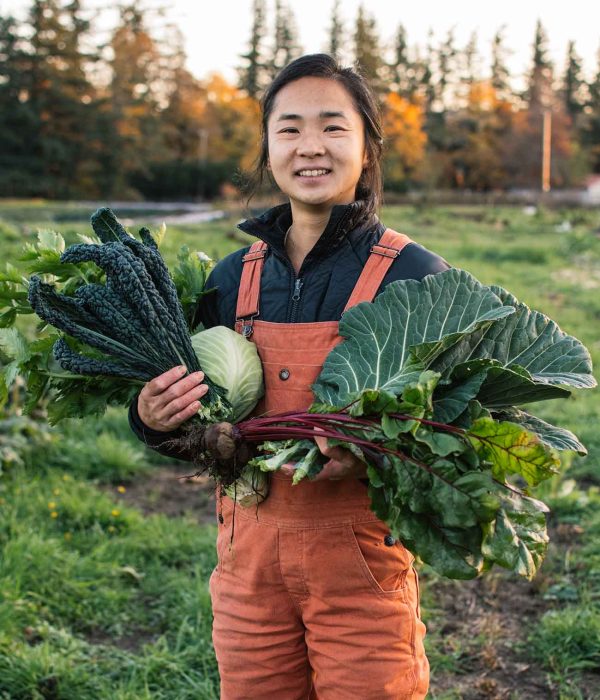
The fourth interviewee in this series about Asian American agriculture is Catherine Nguyen. The daughter of Vietnamese immigrants, Catherine pursued farming out of interest after studying human nutrition and as a way of exploring farms across the country. In 2018, Catherine founded Mora Mora Farm and now farms out of Troutdale, Ore., providing local produce to her Community Supported Agriculture membership.
In the final piece of the series, Emilie Chen interviews Leilani Mroczkowski and Jihelah Greenwald, founders of Kasama Farm. The two farmers speak about their roots in community organizing, the reasons why farming is political, and the deep and emotional connections they have instilled between land and community.
Thank you to each of the interviewees for generously giving their time and sharing their stories.
Thank you to the Ecotrust staff who supported this project over the past year: Yolimar Rivera Vázquez, Megan Foucht, Tony Sterling, Sarah Cline, Olivia M. Rebanal, and Aaron Vargas. Thank you to the many within Portland’s Asian American community and beyond who provided consultation, advice, and connection.